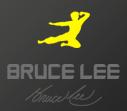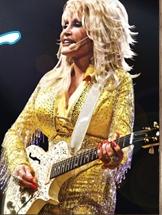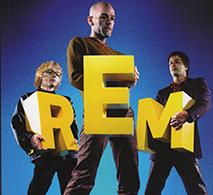New Albany, Ind. — Intellectual property lawyers for Microsoft Corp. of Redmond, Wash. sued  Mister HardDrive and Mark Cady of Scottsburg, Ind. alleging infringement of copyrighted work TX 5-407-055 titled Microsoft Windows XP Professional : version 2002 registered with the U.S. Copyright Office; and Trademark Registration Nos. 1,200,236; 1,256,083; 1,872,264 and 2,744,843 registered with the U.S. Trademark Office.
Mister HardDrive and Mark Cady of Scottsburg, Ind. alleging infringement of copyrighted work TX 5-407-055 titled Microsoft Windows XP Professional : version 2002 registered with the U.S. Copyright Office; and Trademark Registration Nos. 1,200,236; 1,256,083; 1,872,264 and 2,744,843 registered with the U.S. Trademark Office.
Microsoft, the seventh largest publically traded company in the world, has sued Mister Harddrive, a business entity of unknown legal structure that is also known as Mister HardDrive’s Wipe and Restore (“Mister HardDrive”), and Mark Cady, an individual, alleging that they engaged in copyright and trademark infringement; false designation of origin, false description and representation; and unfair competition.
Microsoft develops, markets, distributes and licenses computer software. Microsoft’s software programs are recorded on discs, and they are packaged and distributed together with associated proprietary materials such as user’s guides, user’s manuals, end user license agreements, and other components. Mister HardDrive is engaged in the business of advertising, marketing, installing, offering, and distributing computer hardware and software, including products sold as Microsoft software.
In its complaint, Microsoft alleges that Mister HardDrive and Mark Cady offered, installed, and distributed unauthorized copies of Microsoft software and thereby infringed Microsoft’s copyrights, trademarks and/or service mark. Infringement and/or misappropriation of Microsoft’s copyrights, advertising ideas, style of doing business, slogans, trademarks and/or service mark in defendants’ advertising is also alleged.
Microsoft asserts that in December 2012, defendants were found to have distributed computer systems with unauthorized copies of Windows XP installed on them. Microsoft asked defendants to stop making and distributing infringing copies of Microsoft software but claims that additional computers with unauthorized copies of Windows XP were subsequently distributed by defendants. Microsoft claims that such distribution of counterfeit and infringing copies of their software — along with related infringing items — is ongoing.
The complaint lists the following counts:
· First Claim [Copyright Infringement – 17 U.S.C. § 501, et seq.]
· Second Claim [Trademark Infringement – 15 U.S.C. § 1114]
· Third Claim [False Designation Of Origin, False Description And Representation –
· 15 U.S.C. § 1125 et seq.]
· Fourth Claim [Indiana Common Law Unfair Competition]
· Fifth Claim [For Imposition Of A Constructive Trust Upon Illegal Profits]
· Sixth Claim [Accounting]
Microsoft asks that the court adjudge that the defendants have willfully infringed its federally registered copyright; that the defendants have willfully infringed several of its federally registered trademarks and one of its service marks; that the defendants have committed and are committing acts of false designation of origin, false or misleading description of fact, and false or misleading representation against Microsoft; and that the defendants have engaged in unfair competition in violation of Indiana common law.
Microsoft seeks damages, an accounting, the imposition of a constructive trust upon defendants’ illegal profits, and injunctive relief.
Practice Tip: Microsoft has named as defendants both the business entity and the individual who has been identified as related to Mister HardDrive as “an owner, operator, officer, [or] shareholder, [who] does business as and/or otherwise controls” the business. A corporate officer, director or shareholder is, as a general matter, personally liable for all torts which he authorizes or directs or in which he participates, even if he acted as an agent of the corporation and not on his own behalf.
 Indiana Intellectual Property Law News
Indiana Intellectual Property Law News






